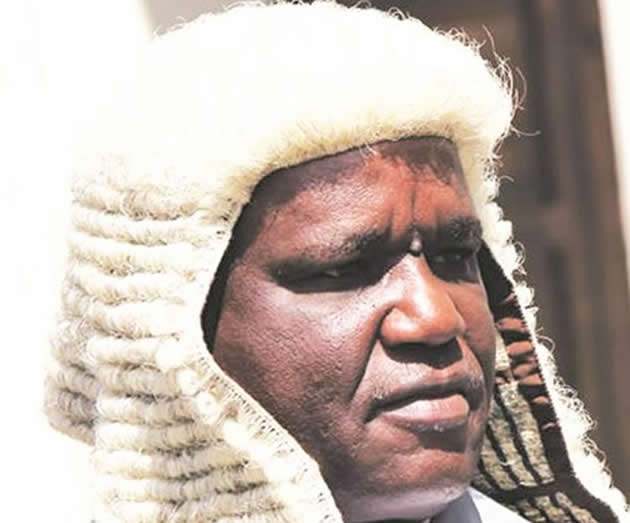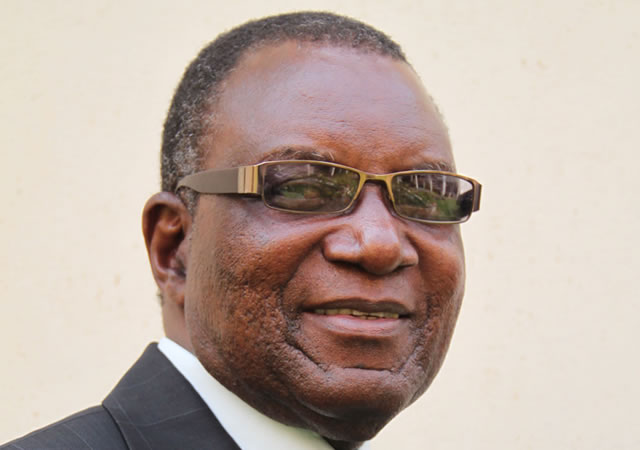Death row prisoners seek to duck hangman’s noose

Daniel Nemukuyu Senior Court Reporter
Deputy Chief Justice Luke Malaba, sitting with eight other judges, yesterday deferred to next year the case in which two death-row prisoners — Farai Lawrence Ndlovu and Wisdom Gochera – are challenging the validity of capital punishment, arguing that it was not in conformity with the new constitutional dispensation.
The court also deferred another case where Obadiah Makoni, who was sentenced to life in prison and is also contesting the constitutionality of life imprisonment with no hope of release on parole.
Justice Malaba postponed the matters upon realising that the three convicts, through their lawyer Mr Tendai Biti of Biti Law Chambers, had filed supplementary heads of argument just a day before the hearing and that the other parties had not been properly served and had not had enough time to respond to them.
The Constitutional Court is expected to rule on whether or not the death penalty is a valid and lawful form of punishment in terms of the new supreme law of the country.
The same court will also determine the constitutionality of automatic imposition of life imprisonment to offenders in circumstances where prospects of their release on parole are not clear.
Ndlovu and Gochera are seeking to scrap from the statutes Sections 47 of the Criminal Law (Codification and Reform) Act (Chapter 9:23) and Sections 337 and 338 of the Criminal Procedure and Evidence Act (Chapter 9:07).
The duo argue that the sections are not in conformity with the Constitution and should be declared unconstitutional.
They also want an order for all prisoners on death row awaiting execution in the country to have their sentences commuted to life in light of the provisions of Section 48 of the new Constitution.
Ndlovu has been on the death row for three years, while Gochera has cloaked 13 years at Chikurubi Maximum Security Prison awaiting execution.
Under the new law, the penalty of murder can only be imposed where murder has been committed in aggravating circumstances, among other things.
Neither the Code nor the Criminal Procedure and Evidence Act makes any reference to aggravated circumstances.
Ndlovu, in his affidavit submitted to the apex court, stated that the new Constitution that came into force on May 22 2013, provided for the right to life under Section 48.
“It, however, allowed derogation of the right to life through a law that may be passed imposing the death penalty,” he stated.
“Neither Section 47 of the code nor Section 337 and 338 of the Criminal Procedure and Evidence Act . . . are in conformity with the Constitution in particular Section 48 of the Constitution of Zimbabwe.”
He further stated that although the two were convicted and sentenced in terms of the old law under an old constitution, they were entitled to the benefit because of the current supreme law.
He argued that the question of sentence and the carrying out of any sentence was a matter of procedure governed by the existing law.
Ndlovu was in 2012 convicted for the murder of Michael Sunderland and Geoffrey Andrew Povey.
Gochera was convicted of murder with actual intent by the High Court in 2002 for murdering South Africa’s Spoornet International Railway executive secretary in September 2001.
Both Ndlovu and Gochera’s automatic appeals were dismissed, leaving them with one last option, to plead for Presidential parole.
Makoni is contesting the Zimbabwean system on releasing life prisoners on parole.
“What applicant does submit in this case is that whether the decision to release a life prisoner should be taken by the parole board (or even by a court), independently from the Executive, so as to protect the separation of powers that inheres in the Constitution.
“The decision should be taken according to established and available criteria in an open process, where the reasons for permitting or refusing release must be given and, crucially, the decision must be subject to review by the courts.
“It is submitted, therefore, that the automatic imposition of a life sentence, by not being sufficiently reducible, constitutes inhuman and degrading punishment and violates Article 53 of the Constitution,” reads part of the heads of argument.








Comments